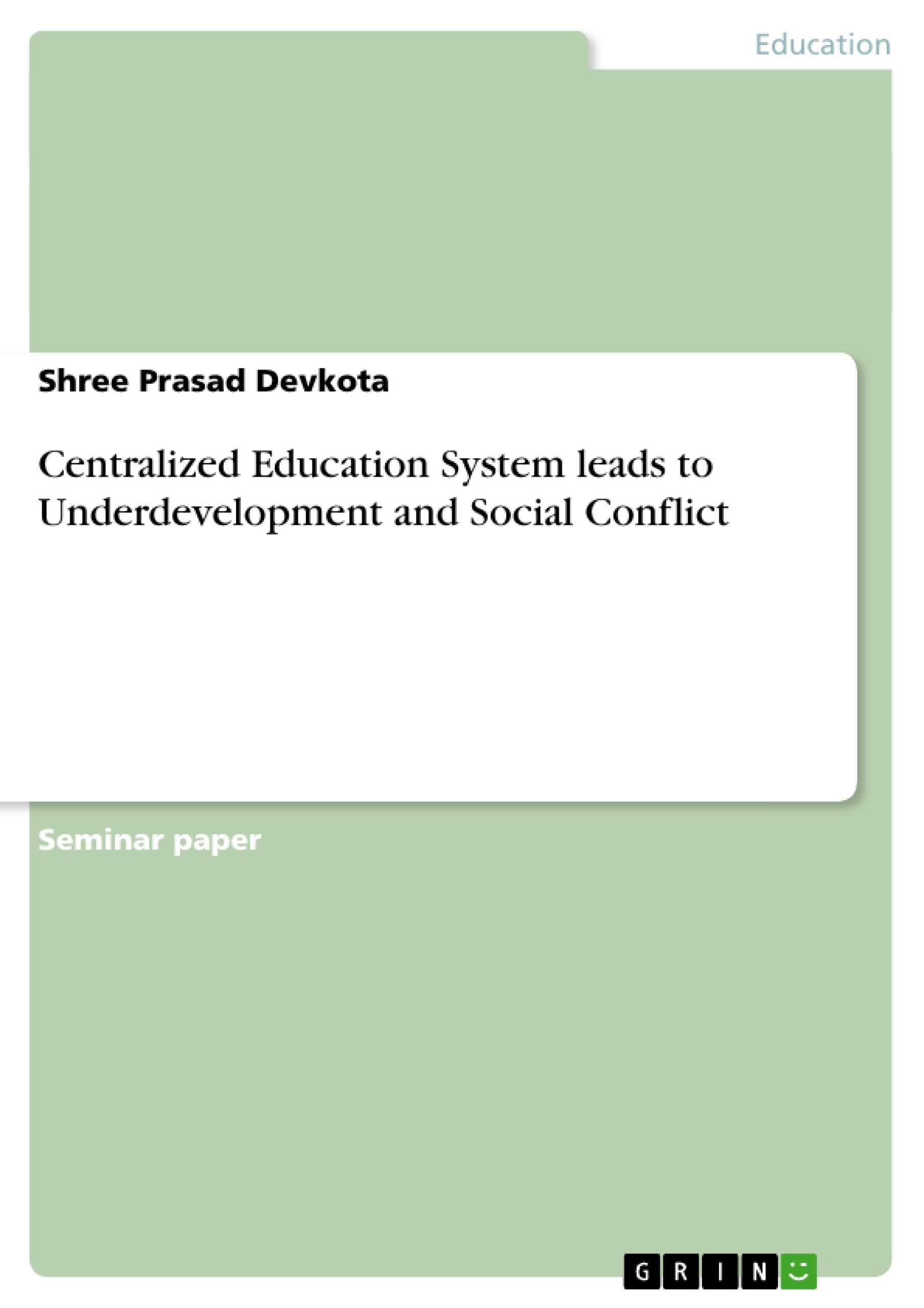Barrier to the inclusive education in school leads to unrest and underdevelopment in the society. The paper focused on the ongoing process of education system in Nepal after the advent of democracy in 1951AD, to till the Peoples Movement of 2004 AD. Six decades political unrest brought drastic change in the socio-economic and education in Nepal. Though, it was unknown, people followed social pattern in the education system. SSRP was implemented with inclusive education along with the policy of mother tongue approach; led fully fledged democratic norms and the principles in education policy in Nepal. Now the time has come, planners, educators, researcher felt the need of inclusive education in the context of Nepal to promote and preserve cultural diversity.
Inhaltsverzeichnis (Table of Contents)
- Background
- Inclusive Education Policy in Nepal
- Situation Analysis of the Disabled Children
- Inclusive Education Practices
- Inclusiveness is Multiculturalism
- Challenges of Inclusive Education
- Conclusion
- Recommendations
- References
Zielsetzung und Themenschwerpunkte (Objectives and Key Themes)
This paper explores the challenges and opportunities of inclusive education in Nepal, focusing on the period from 1951 AD to 2004 AD. It examines the evolution of the education system and its impact on social development, particularly in relation to the needs of disabled children. The paper aims to highlight the need for inclusive education practices that promote cultural diversity and ensure equal access to education for all.
- The impact of centralized education systems on social development
- The role of inclusive education in promoting cultural diversity
- The challenges of implementing inclusive education practices
- The importance of a decentralized education system
- The need for a policy that recognizes and supports multilingual education
Zusammenfassung der Kapitel (Chapter Summaries)
The "Background" chapter discusses the importance of education for social development and the need for an inclusive approach that values diversity. It highlights the challenges faced by disabled children in accessing education and the need for a more inclusive education system.
The "Inclusive Education Policy in Nepal" chapter examines the evolution of education policy in Nepal since the advent of democracy in 1951 AD. It analyzes the strengths and weaknesses of different policies, highlighting the need for a more comprehensive approach that supports inclusive education practices.
The "Situation Analysis of the Disabled Children" chapter provides a detailed analysis of the challenges faced by disabled children in Nepal. It explores the impact of social stigma, limited access to resources, and the lack of appropriate educational support.
The "Inclusive Education Practices" chapter examines various approaches to promoting inclusive education in Nepal. It discusses the importance of teacher training, curriculum development, and the creation of supportive learning environments.
The "Inclusiveness is Multiculturalism" chapter explores the link between inclusive education and multiculturalism. It emphasizes the need for a policy that recognizes and values the diverse cultural backgrounds of students.
The "Challenges of Inclusive Education" chapter discusses the various obstacles to implementing inclusive education in Nepal. It explores issues such as inadequate funding, lack of awareness, and resistance to change.
The "Conclusion" chapter provides a summary of the key findings and argues for a more holistic approach to inclusive education in Nepal.
The "Recommendations" chapter outlines a series of recommendations for policymakers, educators, and researchers to improve the accessibility and quality of inclusive education in Nepal.
Schlüsselwörter (Keywords)
Inclusive education, education policy, Nepal, disability, cultural diversity, multilingual education, social development, decentralized education, teacher training, curriculum development, accessibility, social stigma, policy recommendations.
- Quote paper
- Shree Prasad Devkota (Author), 2014, Centralized Education System leads to Underdevelopment and Social Conflict, Munich, GRIN Verlag, https://www.grin.com/document/282653




